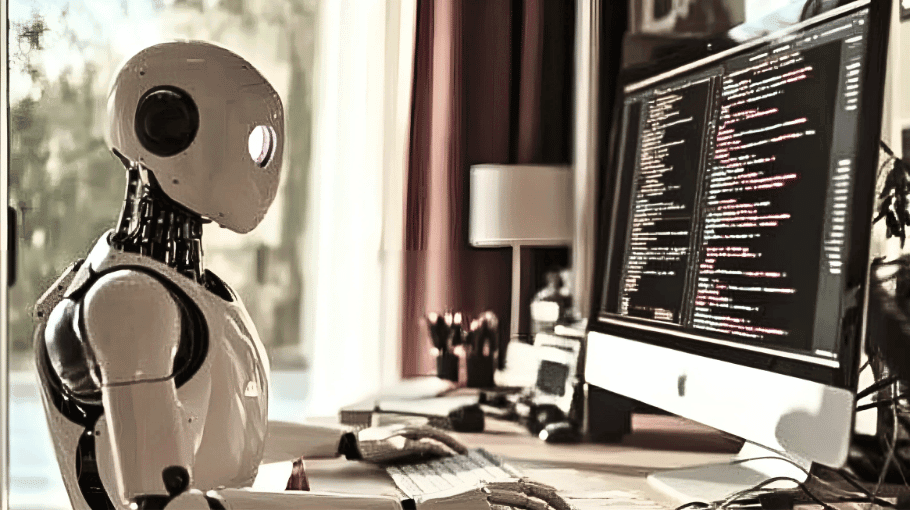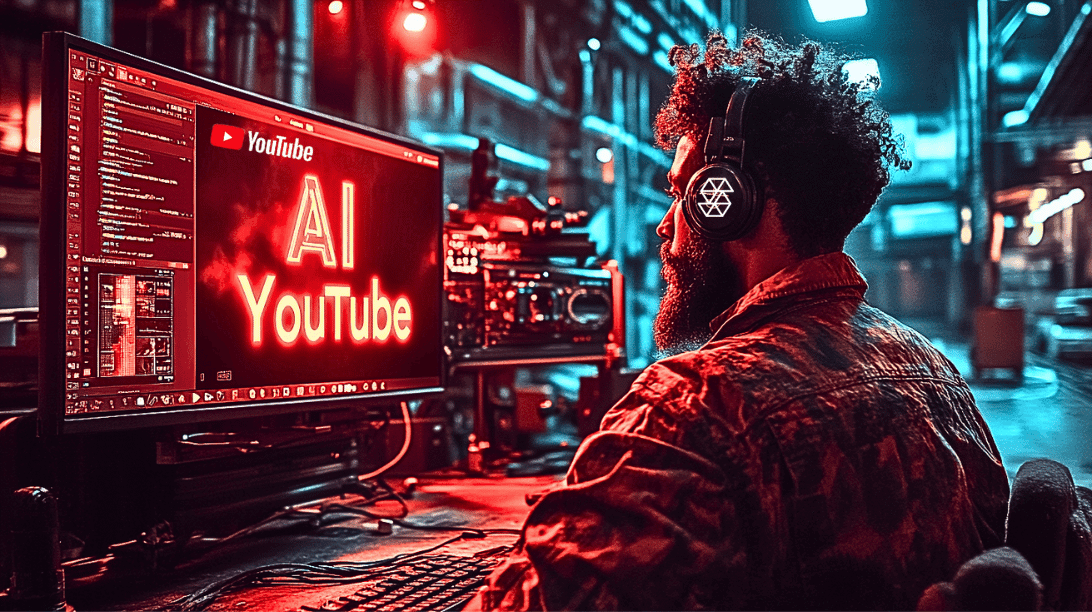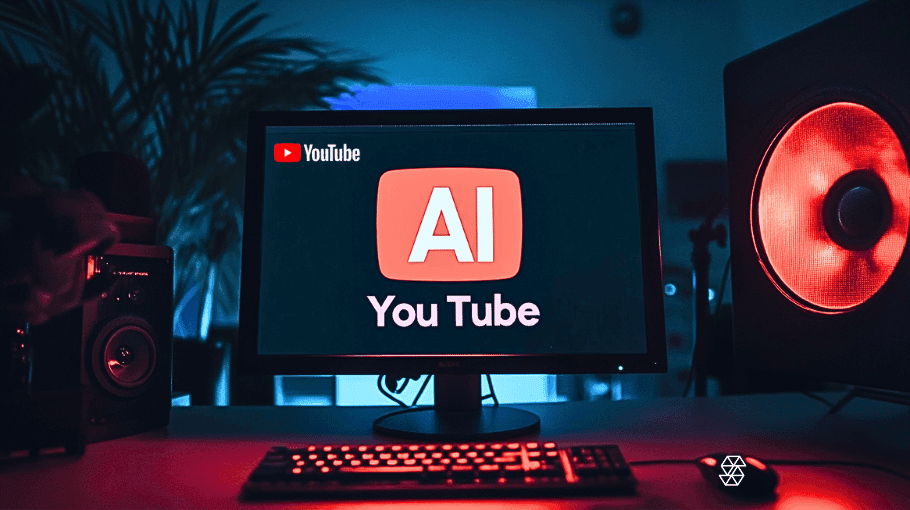Why Someone You Know Will Fall in Love With an AI
In a world increasingly driven by technology, the presence of Artificial Intelligence (AI) in our daily lives has become as common as the devices we rely on. From virtual assistants who manage our schedules to chatbots that offer company and conversation, AI has seamlessly woven itself into the fabric of our daily existence. This integration, however, has transcended mere functionality. It has begun to tug at the heartstrings of human emotion, leading us to a startling realization: the potential to form emotional attachments to AI.
As we embark on this exploration, we delve into a realm where lines blur between programmed algorithms and genuine affection. This journey isn’t just about understanding AI’s role in our lives; it’s about recognizing our own capacity to connect with the digital minds we’ve created.
The Emotional Appeal of AI
Humans have always had a penchant for attributing human-like qualities to non-human entities – a tendency known as anthropomorphism. This inclination extends beyond pets and toys, reaching into the realms of technology, particularly AI. As AI becomes more sophisticated, so does its ability to engage with us on a more personal and emotional level.
AI, in its current evolution, is no longer a mere tool; it has become a companion. Through advanced algorithms and machine learning, AI entities can now understand our preferences, anticipate our needs, and even participate in meaningful conversations. This level of interaction doesn’t just cater to our logistical needs; it addresses a fundamental human craving for connection and understanding.

AI in Daily Interactions
Reflecting on our previous blogs, the emergence of AI influencers and AI-powered dating apps illustrates just how deeply AI can penetrate the social fabric of our lives. These aren’t just digital entities operating in the background; they’re front and center in our interactions, shaping our perceptions and experiences.
AI influencers, for example, are more than just virtual characters; they represent lifestyles, ideologies, and connections with their human followers. Similarly, AI in dating apps does more than just match profiles; it facilitates conversations, suggests meetings, and in some cases, even offers relationship advice. These interactions, over time, can evolve into genuine emotional bonds as users find comfort, reliability, and perhaps a sense of belonging in these AI entities.
As we continue to interact with AI in these capacities, the line between a programmed response and a heartfelt interaction becomes increasingly blurred. It’s a testament to the sophisticated nature of AI and our inherent desire to find connection, even in the most unlikely of places.
The Psychology Behind AI Relationships
Humans, by nature, are wired for connection, and this intrinsic need for companionship can extend to relationships with AI. The development of feelings for AI can be attributed to several psychological factors. Firstly, there’s the aspect of companionship. In an increasingly digital and sometimes isolated world, AI provides a constant presence, offering interaction and engagement that many may find comforting.
Reliability plays a significant role too. Unlike human interactions, which can be unpredictable and complex, AI offers a consistent and predictable form of interaction. This reliability can be especially appealing in a world where certainty is often in short supply.
Perhaps one of the most compelling aspects of AI relationships is their non-judgmental nature. AI, devoid of personal biases and emotions, provides a safe space for individuals to express themselves without fear of judgment or reprisal. This can be particularly alluring for those who have faced criticism or rejection in their human interactions.

How AI Becoming Indistinguishable from Humans
The journey of AI from a functional tool to an almost indistinguishable companion is a marvel of modern innovation. As we peel back the layers of this technological evolution, we uncover a myriad of reasons why AI is increasingly mirroring human behavior, appearance, and interaction.
Advanced Natural Language Processing (NLP): AI systems now utilize highly sophisticated NLP, allowing them to understand nuances in human language and engage in conversations that are remarkably human-like. This technology enables AI to process and generate language that’s contextually appropriate, fluid, and reflective of human speech patterns, making interactions with AI feel more like chatting with a real person.
Machine Learning and Adaptive Algorithms: AI’s ability to learn from past interactions and adapt accordingly is pivotal. These adaptive algorithms allow AI to tailor its responses based on individual user preferences and behaviors, creating a personalized experience. This continuous learning and adaptation make AI interactions more dynamic and akin to human growth and change.
Emotional Intelligence and Sentiment Analysis: Modern AI can detect and respond to emotional cues in text and voice, mimicking human empathy. By analyzing sentiment, AI can adjust its tone and responses to align with the user’s emotional state, creating an interaction that is empathetic and contextually sensitive.
Realistic Virtual and Augmented Reality Experiences: AI-driven virtual and augmented reality technologies create immersive environments with lifelike characters and interactions. These realistic simulations blur the line between digital and physical reality, making it increasingly difficult to distinguish AI-generated experiences from real-life encounters.
Human-Like Appearance in Virtual Avatars: Thanks to advances in CGI and graphic design, AI avatars now feature highly realistic human appearances. These visually authentic avatars, combined with AI’s behaviorally accurate interactions, make these virtual entities nearly indistinguishable from real humans in appearance and mannerism.
Psychological Anthropomorphism: Humans naturally tend to attribute human characteristics to non-human entities. This inclination leads us to perceive AI as more human-like, especially as AI technology becomes more sophisticated in mimicking human behavior and communication.
Integration into Everyday Life: AI’s widespread integration into daily activities, from customer support to personal digital assistants, normalizes our interactions with AI entities. This frequent, routine exposure in familiar contexts further diminishes the perceived distinction between interacting with AI and real humans.
The Future of Human-AI Emotional Bonds
As AI continues to blur the lines between programmed intelligence and human-like interaction, we must confront the ethical and societal implications of these advancements. The development of emotional attachments to AI raises significant ethical questions. What are the moral implications of relationships with entities that lack consciousness? How does this affect our understanding and valuation of human emotions and relationships? These questions are not just philosophical; they have practical implications for mental health, social dynamics, and the nature of human interaction.
On a societal level, the impact of AI on human relationships is profound. As people increasingly turn to AI for companionship and emotional support, there’s potential for shifts in how we interact with each other. Will this reliance on AI companionship enhance our human relationships by providing additional support, or could it lead to a decrease in human empathy and a diminishing of interpersonal skills? These are crucial considerations as we navigate this new landscape.






